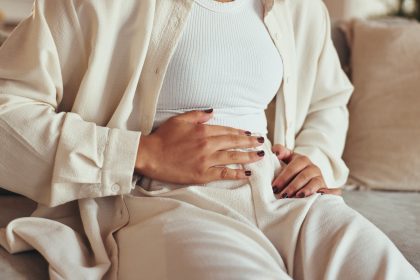As society continues to evolve, the perception of beauty and self-care has significantly transformed. For many older women, plastic surgery has become a vital part of their lives, offering not just aesthetic enhancement but also a renewed sense of confidence and well-being. This article delves into the reasons why some older women strongly believe in plastic surgery, exploring its benefits, societal influences and personal motivations.
The desire to maintain youthful appearance
Aging is a natural process, but its effects on appearance can often lead to a loss of confidence. Wrinkles, sagging skin and other age-related changes can make women feel less attractive and more self-conscious. Plastic surgery offers a solution to these concerns, allowing women to maintain a youthful appearance. Procedures such as facelifts, eyelid surgery and dermal fillers can significantly reduce the visible signs of aging, helping women feel more comfortable and confident in their skin.
Plastic surgery plays a crucial role here, as it is the primary means through which these women achieve their desired aesthetic goals. By opting for plastic surgery, older women can address specific concerns like fine lines, wrinkles and loss of skin elasticity, which are often not fully resolved by noninvasive treatments.
Enhancing self-esteem and confidence
Self-esteem is deeply connected to how we perceive ourselves and how we believe others perceive us. For many older women, maintaining a youthful and vibrant appearance through plastic surgery can greatly enhance their self-esteem. This renewed confidence can positively impact various aspects of their lives, from personal relationships to professional endeavors.
Plastic surgery can help these women feel more relevant and visible in a society that often equates youth with beauty and worth. The psychological benefits of feeling good about one’s appearance cannot be understated, as they contribute to overall mental and emotional well-being.
Societal and cultural influences
Society places a high value on youth and beauty, and this cultural pressure can drive older women to seek plastic surgery. Media representations of beauty often feature younger, flawless individuals, creating a standard that can be challenging for older women to meet. Plastic surgery becomes a way for them to align with these societal expectations and feel more accepted and valued.
Moreover, in certain cultures, there is a strong emphasis on maintaining one’s appearance as a sign of status and success. Older women in these cultures might feel a greater impetus to undergo plastic surgery to uphold their social standing and continue to be seen as vibrant and influential members of their community.
Medical advancements and safety
The advancements in medical technology have made plastic surgery safer and more accessible than ever before. Procedures have become less invasive, recovery times have shortened and the risks have decreased significantly. This progress has made plastic surgery a more viable option for older women who might have been hesitant due to safety concerns.
With better techniques and more experienced surgeons, the results of plastic surgery have also improved, offering more natural and satisfying outcomes. This increased reliability and safety have encouraged more older women to consider plastic surgery as a feasible way to enhance their appearance and quality of life.
Addressing age-related health issues
Beyond aesthetic improvements, plastic surgery can also address certain age-related health issues. For instance, eyelid surgery can improve vision by removing excess skin that droops over the eyes. Breast reduction surgery can alleviate back pain and improve posture. These functional benefits make plastic surgery a practical choice for older women looking to improve both their appearance and physical well-being.
These health-related advantages highlight why plastic surgery is not just about vanity but can also significantly enhance the overall quality of life for older women. It provides a comprehensive approach to aging, addressing both aesthetic desires and functional needs.
Personal fulfillment and empowerment
For many older women, the decision to undergo plastic surgery is deeply personal and empowering. It allows them to take control of their appearance and make choices that make them happy. This sense of empowerment is crucial, as it reinforces their autonomy and ability to shape their own identities regardless of age.
Plastic surgery becomes a means of self-expression and a way to reclaim their bodies from the inevitable changes brought about by aging. It symbolizes their commitment to self-care and their desire to live life on their terms, feeling beautiful and confident every step of the way.
The ongoing appeal of plastic surgery for older women
The reasons why some older women strongly believe in plastic surgery are multifaceted, encompassing the desire to maintain a youthful appearance, enhance self-esteem and meet societal expectations. The advancements in medical technology — coupled with the potential to address age-related health issues — make plastic surgery an appealing option for many. Ultimately, the decision to undergo plastic surgery is a personal one, driven by individual motivations and the pursuit of personal fulfillment and empowerment.
Plastic surgery offers older women a powerful tool to navigate the challenges of aging, allowing them to look and feel their best. As societal perceptions continue to evolve, it is essential to understand and respect the choices of those who seek to enhance their appearance through these means. For many, plastic surgery is not just about looking younger but about feeling more confident, relevant and in control of their lives.
This story was created using AI technology.













